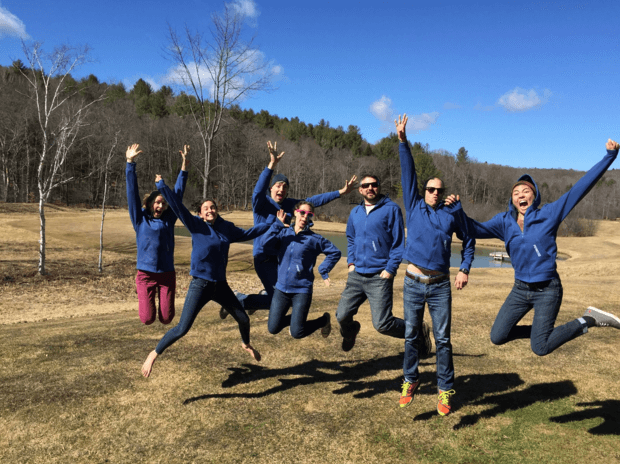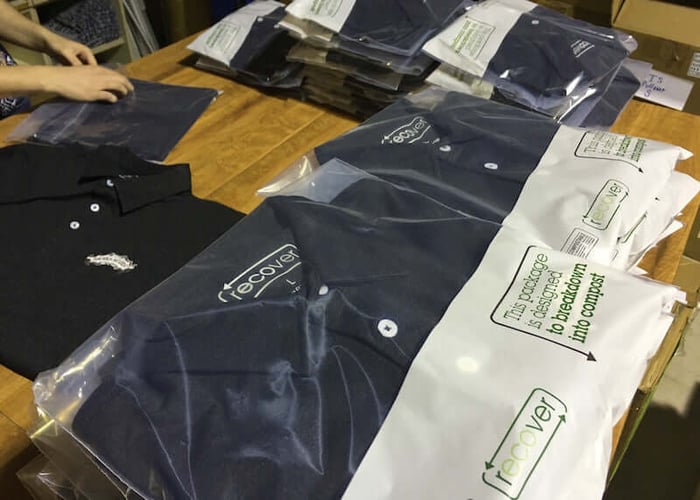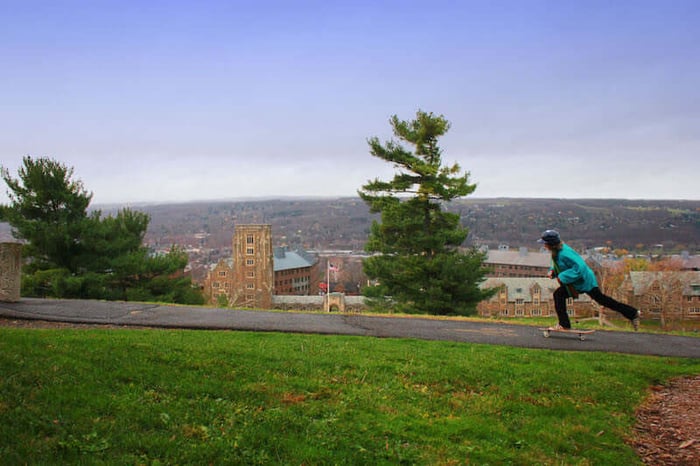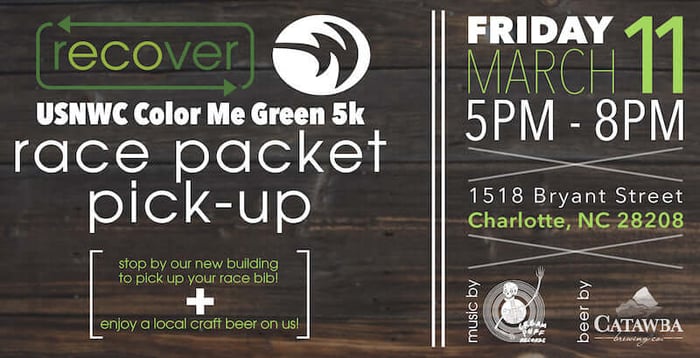
“Be travelers, not tourists.” That’s always been the Putney Student Travel mantra. Since founders George and Kitty Shumlin and a small student group first boarded a steamship as the European Travel Camp back in 1951, the Vermont-based organization has guided thousands of intrepid young travelers “off the beaten track.” Putney’s students visited the USSR in 1957 during the height of the Cold War; summited Mt. Kilimanjaro during the program’s inaugural trip to Africa in 1968; trekked through the rugged coal country of China in the 1980s, and helped rebuild a village on the small Caribbean Island of Montserrat following Hurricane Hugo in 1989.
These days, George and Kitty’s sons, Jeffrey and Peter, and their talented staff oversee a variety of travel programs for students grades 6-12. Examples include pre-college trips to Shanghai, language immersion courses in Spain, writing workshops in Ireland, and community service initiatives in Nepal. Putney also works with National Geographic to offer National Geographic Student Expeditions; groundbreaking experiences designed “for the next generation of explorers, writers, scientists, filmmakers, and photographers. ”
We’re so inspired by Putney’s adventurous spirit, as well as their drive to help students develop a greater respect for the disparate places and people that make our world unique. Last week, Lauren McDowell, Putney’s Travel Coordinator for Latin and South America, took time during a planning trip to Cuba to answer a handful of questions for us. (“No internet. Old fashioned– on pen & paper.”) Read on to learn more about Putney’s worldly approach to travel, community service, and sustainability.

The Putney mantra is to “Be travelers, not tourists.” What are some of the ways you try to help your students get the most out of their travel experience?
Our leaders begin every Putney program by asking students what they think the difference between a traveler and a tourist is. It’s a subtle but important distinction that students tend to discover on their own, and this creates the foundation for their Putney experience. By sharing with each other and learning to function as a member of a team, they have a deeper understanding of the importance of their actions as they interact with local people around the globe. I guess all of that is a roundabout way of saying that from the first moment of a Putney program, we help our students find their own voice within the group, listen to and reflect on the voices of others, take ownership of the experience, and make their own discoveries.
Since the early 90s, Putney has developed a variety of community service trips. How do you decide where to go and who to help?
In 1989 Hurricane Hugo devastated a large swath of the Caribbean and the small island of Montserrat was hit particularly hard. Our very first Community Service program came to be in the summer of 1990 as we responded to this challenge by working directly with local people to rebuild a village in Montserrat. Led by longtime Putney leader and program director, Tim Weed, this small group of intrepid students ventured out into the field to live simply, become integrated into the life of a small community, and work hand-in-hand with local people to both learn from them and help in their efforts to rebuild. This pioneering program became a model for the Putney Community Service experience and for creating small-scale partnerships with rural communities around the globe.
While several of our Community Service programs grew out of similar hardships—hurricanes, earthquakes, or floods—others have been born from travels and friendships between Putney directors and our contacts abroad. In Costa Rica, for example, villages that we have partnered with for more than five years introduce us to nearby, smaller towns eager to receive a Putney group. Villagers take on the roles of teaching the new community how to organize and support project collaboration, cooking, housing, and more. In East Africa, Putney’s director Jeff Shumlin and his wife took an adventurous safari as a honeymoon in 1993. They connected with a wonderful Tanzanian family and an enduring Putney friendship was born; as a result, hundreds of Putney students have lived and worked in rural villages in Tanzania over the past 20 years.

What emphasis does Putney place on sustainability?
We take care to partner with people and organizations around the globe who share our values. We create each Putney program by working directly with local people, not tour groups. We choose to connect with small hotels and inns, often owned and operated by local families. We seek out professionals in the field who have the appropriate credentials and who practice sustainability as they pursue their passions. For example, in Ladakh (northern India in the high Himalaya), Putney partners with a small high school founded upon the principles of sustainability. The school’s teachings focus on local ecology, water conservation, and living and interacting with the natural world in a sustainable manner. Putney students live at the school and work with Ladakhi teenagers as they participate in and learn about all aspects of running the school.
Day to day in Putney, Vermont, we are based in an “office” which was once a cow barn, located on a dirt road. Instead of building a new office, we used what was available and have taken great care to steward the surrounding landscape. We walk, jog, bike, hike, and ski to explore our pristine southern Vermont surroundings. During Vermont’s long winter, our office participates in a local CSA (Community Supported Agriculture) where we purchase directly from organic farmers and receive a box of fresh produce bi-weekly. Many of us are members of local food cooperatives and strive to find foods grown locally and organically, to reduce our footprint, and understand that price and cost are not always positively correlated.

How did Putney decide to partner with Recover?
I think it was good fortune, really! Each spring for the past several years a small crew of Putney directors have run in a half marathon in Middlebury, Vermont, called the Middlebury Maple Run. In 2012, the Middlebury Maple Run printed their gorgeous, soft, recycled shirts with Recover, and we each received one on race day in early May. Let’s just say it was love at first sight, and especially after we read the label and saw that the shirts were recycled and produced in the U.S. The very next week I was on the phone with Bill to request a quote for the first-ever batch printing of a Putney T-shirt.

What have you enjoyed most about working with Recover?
It has been a real delight to work with a small company that understands the importance of a strong personal connection and values high-quality products sourced in a sustainable way. From the beginning, we got a strong sense of Recover’s commitment to sustainability and to getting to know your clients. Bill is a joy to chat with on the phone, and always willing to work with us, to brainstorm to figure out a solution, or to help design a new product. I will also add that several of us went to university in the South, and love the opportunity to reconnect with the region, collaboratively and sonically! From all of us here at Putney, we look forward to a continued partnership with Recover!






